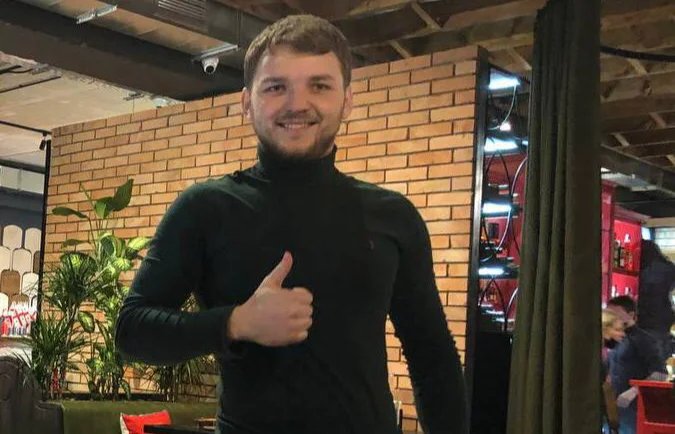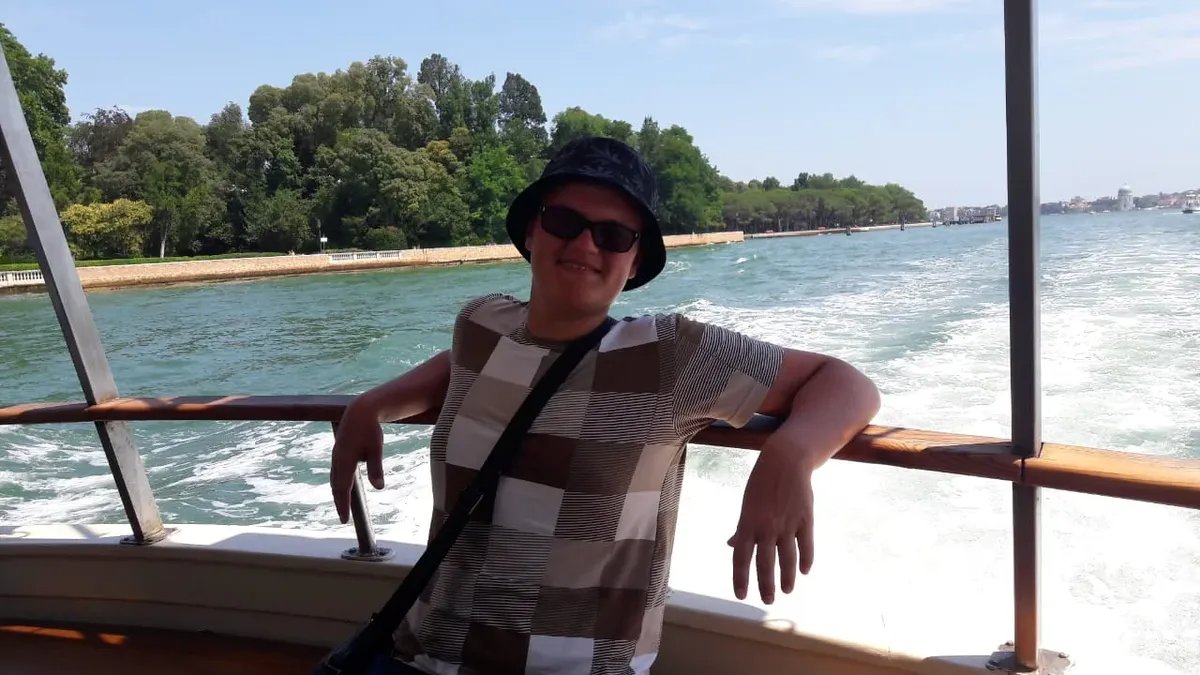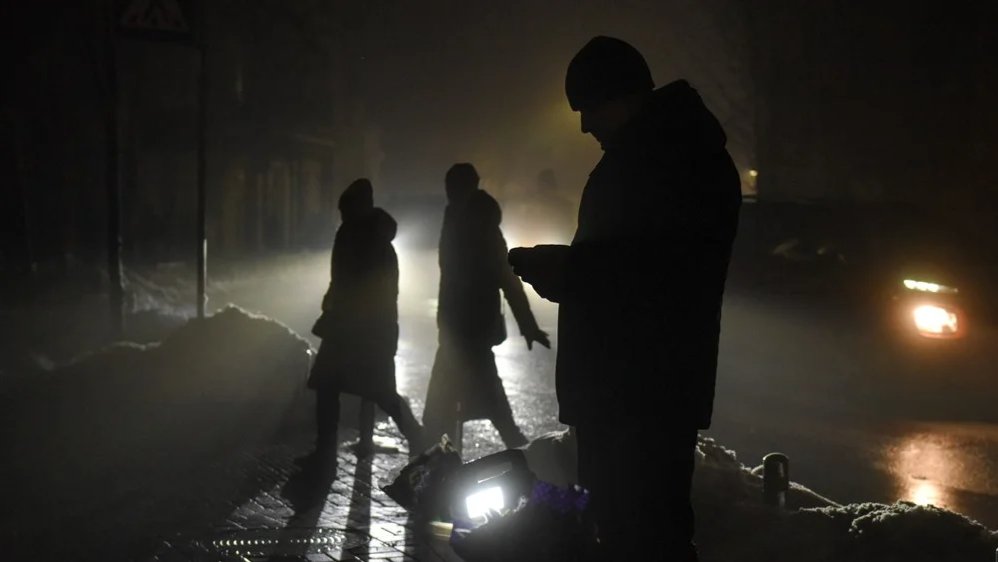Ivan Honchar, a 24-year-old Ukrainian citizen, was fleeing the Russia-occupied city of Mariupol together with his family at the beginning of April. He, like almost all war refugees from the city, had to go through the “filtration” process. After an interrogation, he was detained; he never re-joined his relatives and basically ended up in captivity. There has been no way of contacting him for eight months now.
Mykyta Shkryabin, a 20-year-old Ukrainian, is in a similar situation. He was detained in the Kharkiv region at the end of March. There were no criminal charges pressed against him, just like in the case of Ivan Honchar; his legal status is unknown. A Russian court announced that Mykyta had no procedural rights, even the right to counsel.
Holding civilians as captives is a war crime. However, this now occurs regularly in Russia. According to the Agora human rights group, thousands of captive Ukrainians are currently confined outside the legal field. Novaya Gazeta Europe explains how Ukrainian civilians end up held hostage in Russia and how Russian lawyers are trying to break them free.
Ivan Honchar, 24. Detained ‘for opposing the special military operation’. Location unknown for eight months
Ivan graduated from Mariupol’s Metallurgical Institute, but he never worked in that field. He opened his own business — he sold brand clothing in a store in Mariupol. According to his relatives, Ivan has never served in the army and is in no way connected to the military.
He lost his house after Russian shelling; at the beginning of April, he and his family fled Mariupol, using the only possible way out — through Russia. Everyone had to go through the “filtration” process, more than once. According to his mother, Valentyna, the first time they were stopped was at a security checkpoint in the [Donetsk region village] Bezimenne. There, he passed a “check”.
“They asked questions: whether you support Ukrainian servicemen, how you feel about the ‘special operation’, they checked phones. They kept him for around five minutes and then let him go,” she says.
Afterwards, the family took a bus to the Donetsk region border. There, a security checkpoint of the self-proclaimed Donetsk “people’s republic” (“DPR”) is located, further down is the Russian border.
“We passed the ‘DPR’ [checkpoint], they didn’t ask us anything, we just [showed] our documents. But at the Russian border, of course, everyone, especially men, were checked. Vanya [Ivan] was called in too. He was gone for around 15 minutes. I was, of course, very worried, but he came back smiling, said everything was fine. But thirty minutes later, he was called in again. And that’s it. I haven’t seen him or heard from him since,” Valentyna says.
She was advised to cross the Russian border without Ivan and assured that he would be soon let go.
“Naively, I trusted [those] people and [crossed the border],” she continues. A camp for Ukrainian refugees was located near the border. There, she spent four days waiting for her son’s return. But he did not come back. All that time, she was just told to keep waiting and not to worry.
On the fourth day, Valentyna demanded to be allowed into the customs. There, she was shocked to hear that, apparently, her son had been let go on the first day, 9 April. But she was not told where he had ended up.
“Just imagine, here I am, I don’t know what to do, where to [ask for help]. I am walking and crying, and that’s it. Where’s my son?”
Valentyna asked for help from the Red Cross. Went to the prosecutor’s office. Filed a missing person report with the police. For ten days, she sat in the refugee camp near the border and tried to find Ivan, unsuccessfully. All her pleas went unanswered.
Valentyna and her husband currently reside and work in Germany, in the town of Kleve. Human rights organisation Every Human Being is helping them to look for Ivan.
There was no news about Ivan’s whereabouts until August. One of the Telegram channels that posts POW lists published his name with a description “civilian, captive, 9.04.2022”.
Human rights defenders note that taking civilian prisoners is a war crime. Article 4 of the Geneva Conventions explicitly states that hostage-taking of non-combatants is unacceptable.
There has been no way to contact Ivan for eight months, his relatives and human rights defenders do not know where he is.
Using all available means, they sent an inquiry, among other places, to Russia’s Defence Ministry. They inquired about his location and status. And a response did come.

Ivan Honchar, photo provided by his mother Valentyna
However, the Defence Ministry is contradicting itself, Polina Murygina, lawyer and founder of Every Human Being, says.
The agency, without referring directly to Ivan’s status (“captive” or “person detained on a criminal or administrative charge”, “serviceman” or “civilian”), reported that he had been detained for “opposing the special military operation”.
The ministry employees added: “Information about the location of individuals detained for opposing the special military operation is limited distribution data, and it is not to be shared with third parties.”
“So, they won’t tell us where he is. We are worried about a person’s life. We have not once seen him in person, we have received no news from him. And a lot of things could’ve transpired in eight months,” Murygina notes.
Furthermore, Ivan is not considered a detainee under the law, because formally, without a court order, a detention can only last up to 48 hours, she says. “Or there could be a court order, but that would mean that he had been charged with some wrongdoing, an administrative or criminal one. But if he was being charged with something, we would’ve been told about it,” she adds.
Murygina notes that in its response, the Defence Ministry refers to the Geneva Conventions articles on treatment of POWs. However, Ivan is a civilian, not a POW, so this Convention does not apply to him. “Also, this Convention plainly states that a person’s family has to be notified about their capture and location no later than a week after the fact. Even if he were a prisoner of war, this is still a violation of the Geneva Conventions,” Murygina explains.
According to her, civilians are mainly captured on the occupied territories of the Donetsk and Luhansk regions of Ukraine. However, Ivan was captured on the territory of Russia.
“We’re in contact with human rights defenders who are engaged in similar activities. They also say that it’s atypical for Russia to take civilians captive; usually, when they capture Ukrainians, they try to do so under some procedural form. For example, they accuse them of committing a crime. During wartime, it’s usually extremism or terrorism,” she explains.
In any case, the relatives need to be told where a person is, and they have the right to know that their loved one had been detained, that they are accused of something. A person cannot just disappear without a trace, the relatives have the right to know that this person is, for example, being held in a pre-trial detention centre or a special detention centre, Murygina emphasises.
“We are planning to submit inquiries to the Ministry of Defence and send lawyers to search for Ivan in pre-trial detention centres,” she notes.
“First things first, we need to establish his location.”
There are two scenarios moving forward, she explains.
The first one — the human rights defenders will be able to make the Russian side see that capturing civilians is a war crime and that all of them, including Ivan, need to be set free. The second — a prisoner swap. During wartime, prisoner exchanges are conducted according to the parity principle. For example, a private can be exchanged for a private, an officer — for an officer.
A civilian can only be exchanged for a civilian, so to achieve this, both sides would have to admit to breaking the law.
“There could be an agreement to exchange Ivan for a private. But in this case, Ivan’s location needs to be discovered, which has not been done. So, the question of where he is the key one right now,” Murygina adds.
Support independent journalism
All independent media have been banned in Russia which makes our work not only challenging but outright dangerous. We need your support.
Mykyta Shkryabin, 20. First captured Ukrainian whose case ended up in a Russian court. Location unknown
The Agora human rights group representatives are faced with a similar case. They are helping to locate Mykyta Shkryabin, a 20-year-old third-year student of the Kharkiv Law University. He went missing on 29 March.

Mykyta Shkryabin, photo provided by his mother Tatyana
“He just went outside and never came back,” his mother Tatyana says. “He’s a student, he’s a civilian. He has no relation to any military organisations or Ukraine’s Armed Forces. At the moment of him going missing, he was 19.”
Tatyana has tried everything to find her son.
“There was a rumour that he was taken by Russian soldiers. Eyewitnesses saw them take him away in an unknown direction.
By April, I had already started searching for him,” she continues. According to Tatyana, she contacted Russia’s Commissioner for Human Rights Tatyana Moskalkova and the International Committee of the Red Cross.
However, there was no official response.
“I only received a call from the International Committee of the Red Cross at the beginning of May. I was told that the Russian Federation confirms my son’s location is in Russia. Then, on 9 May, I received a call from the Office of the Commissioner for Human Rights Moskalkova and was told again that his location is in Russia. I asked whether I could speak with him, see him. I asked what he was detained for. I didn’t receive an answer,” she says.
Afterwards, she contacted Leonid Solovyov, a lawyer for Agora. They discovered that no criminal case had been initiated against Mykyta. However, there was no way to contact him for going on eight months. “The last time I saw my son was on 29 March. Since then, I haven’t seen him, haven’t heard his voice. No one has given me any concrete answers. What for? Why? Where? How?” Tatyana questions.
“Shkryabin is a civilian detained as a prisoner. It’s unknown where he is currently, the Defence Ministry won’t say,” lawyer Solovyov says.
There have been no court decisions on his imprisonment, he has not been charged with anything, there are no procedural grounds for him to be detained, Agora representatives emphasise. Russia’s Investigative Committee, Ministry of Internal Affairs, and Federal Security Service are not investigating him in relation to any criminal case.
Nevertheless, in response to the human rights defenders, just like in the case of Ivan Honchar, the Defence Ministry wrote that Mykyta had been detained for “opposing the special military operation”. The document repeats the one sent to Every Human Being word for word, except for Mykyta and his lawyer’s names.
The lawyer filed a report with the military investigation department of Russia’s Investigative Committee. His statement accused Russian soldiers of denying Mykyta contact with the outside world for a long period of time. The Investigative Committee rejected the report.
Then, Solovyov filed a statement with a garrison military court. On 12 December, the court found the inaction of the military investigative bodies to be lawful. Mykyta became the first Ukrainian civilian captive whose case was considered by a Russian court, Agora representatives say.
The court found that Shkryabin had been detained for “illegal actions”, however, he is not a person of interest in a criminal case, there is no prosecution being conducted against him. Which is why, according to the court’s decision, he has no procedural rights,
including the right to counsel.
“There was no court hearing [on Mykyta’s detention], there are no criminal cases opened against him. Basically, this was the question I presented to the court. There’s been no answer,” Solovyov emphasises. “After this answer from the court, I will reflect on what to do [next]. We will, probably, appeal,” the lawyer says.
“I’m not ready to stop. I want to see my son free,” Tatyana declares.
Thousands of Ukrainians without any rights are isolated in Russia
These are not the first cases of civilians being held captive. According to Agora, which cites various estimates, several thousands of captive civilians of Ukraine are being held in Russia, the location of most of them is unknown.
Karina Malakhova-Dyachuk, an administrator of one of the private Telegram groups used by civilian prisoners’ relatives to share information, confirmed to Novaya-Europe that the number of captives could be several thousands. However, there is no exact figure, she adds. Back in April, Ukraine’s Minister of Reintegration of Temporarily Occupied Territories, Iryna Vereshchuk, said that over 1,000 Ukrainian civilians were in Russian captivity.
Polina Murygina and Oleksii Ladukhin, lawyers for Every Human Being, have managed to free over 200 civilians since the start of the war. They took on cases of captives held in the Kozatske village and the penitentiary in the Olenivka village (both located in the separatist-occupied part of the Donetsk region of Ukraine).
According to Murygina, around 30 civilians were held in Olenivka; among them, there were people who provided aid in Mariupol — brought food and medicine. “They were allowed to unload, for example, the medicine, were told to bring it to hospitals. And then their cars were taken away,” she explains.
All of the detained civilians were not charged with anything, but they still were imprisoned in harsh conditions, the lawyer emphasises. “Psychological abuse was allowed there, there were cases of physical violence. And the most important thing — they were held in total isolation,” Murygina notes.
Thousands of captives were held in the colony in Olenivka — from civilian volunteers to Ukrainian servicemen. All of them were captured in the south and east of the country.
Among the prisoners, there were hundreds of the Azov Regiment fighters.
In Kozatske, captives were held on the territory of a school, not a colony, Murygina continues. The specifics of being captured there meant that people could have contact with the outside world. “For example, I frequently talked to one young man held there, and he even forwarded me audio messages on Telegram,” she says. Still, Murygina notes, they were treated as hostages: all of their documents were seized, they could not leave the territory of the school, they slept on the floor.
According to Human Rights Watch, almost 200 people were taken as captives in the Kozatske village after having gone through the “filtration” process. For over 40 days, the separatist “authorities” refused to return their passports to them and would not allow them to leave the village. People were held in the local school building in unsanitary conditions, eating meagre rations. Those who had not gone through the “filtration” process were detained. For a long time, there was no information on what had happened to them.
P.S.
Every Human Being team helps all individuals that found themselves captured and were affected by war crimes — no matter their citizenship, status, and place of birth. The human rights defenders fund their work through donations.
Join us in rebuilding Novaya Gazeta Europe
The Russian government has banned independent media. We were forced to leave our country in order to keep doing our job, telling our readers about what is going on Russia, Ukraine and Europe.
We will continue fighting against warfare and dictatorship. We believe that freedom of speech is the most efficient antidote against tyranny. Support us financially to help us fight for peace and freedom.
By clicking the Support button, you agree to the processing of your personal data.
To cancel a regular donation, please write to [email protected]

